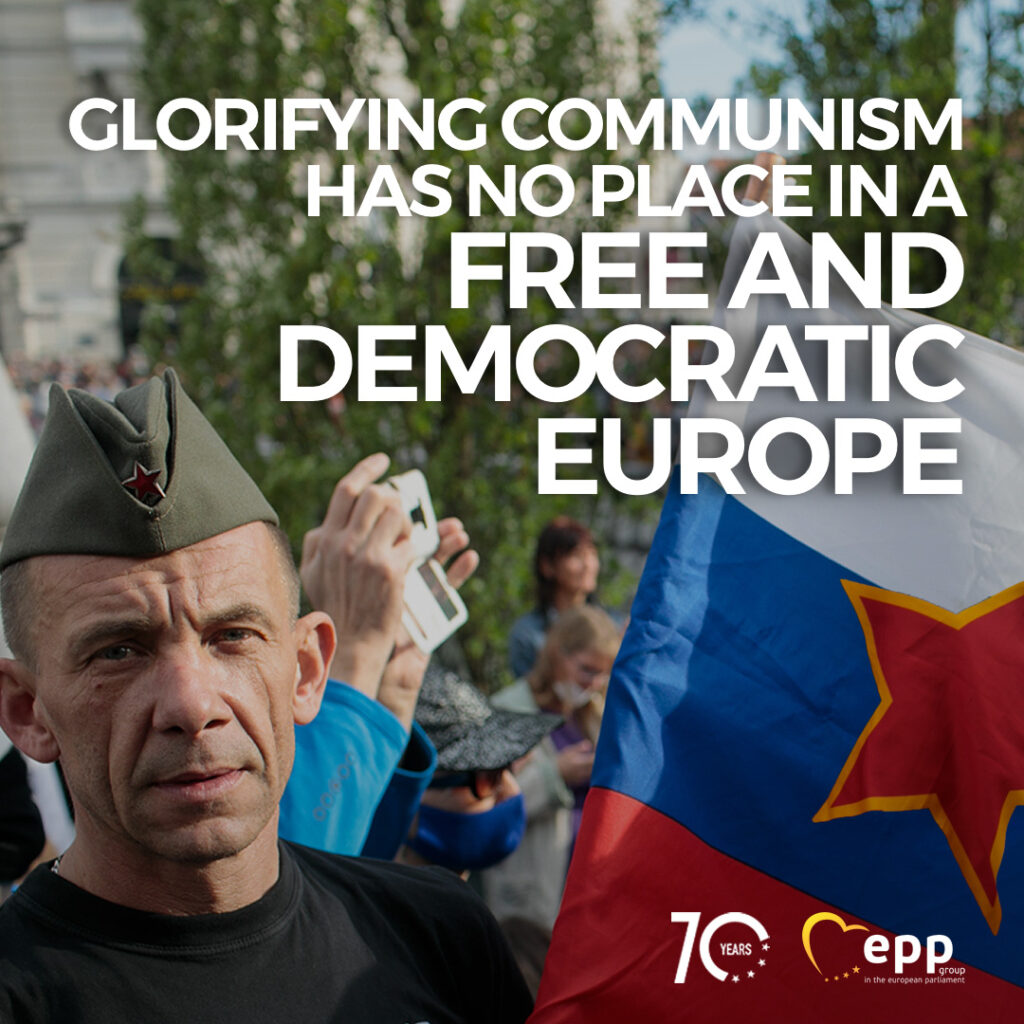The European People’s Party (EPP), which is the largest party in the European Parliament, has reacted to what is happening in Slovenia by stressing that the glorification of communism has no place in a free and democratic Europe. They have already called on the Slovenian government not to ignore the victims of communism. The initiative to respond to what has been going on was addressed to the EPP by Slovenian MEP Romana Tomc.
Despite over 600 murder sites and hundreds of thousands of victims of the communist regime, the Golob government has abolished the National Day of Remembrance for the Victims of Communism, thus trampling on the fundamental norms of civilisation, which touch on the notions of truth, respect and justice, on which any mature state entity that is reconciled with its history must stand firm. Slovenian intellectuals (historians and researchers) have reacted critically to the government’s decision and have expressed their concern. In their words, a National Day of Remembrance for the Victims of Communist Violence remains a civilisational necessity. Prominent Slovenians from abroad also called for reconciliation within the Slovenian nation and for the abolition of the National Day of Remembrance for the Victims of Communist Violence to be cancelled.
The shameful behaviour of the government, which has been making mainly ideological moves during its time in office, has not gone unnoticed abroad this time, including in Brussels, where, unlike us, they are able to condemn all totalitarian regimes: communism, fascism and Nazism.
It is an institutional duty to condemn communism and its crimes
The European People’s Party, in a message to the Slovenian government, stressed that condemning communism and its crimes is a moral question and an institutional duty. They urged the Slovenian government not to ignore the victims of communism. “This extends beyond political ideology,” they stressed, adding that glorifying communism can only widen the divide among people.
As the European People’s Party reacted with astonishment and indignation to the news of the abolition of the Remembrance Day for the Victims of Communism in Slovenia, they have called for a debate on the glorification of communism in Slovenia to be held in the European Parliament in Strasbourg next week. In practice, this means that other EU Member States will also be able to learn about the situation in our country.
The European Commission is also aware of what is happening in our country
The European Commission – which has taken several initiatives in the past to commemorate totalitarian regimes in Europe, as it is aware that several EU Member States have gone through tragic periods in their history – has already been made aware of the actions of the Golob government. In a parliamentary question for the European Commission, MEP Romana Tomc revealed, among other things, that symbols such as the red star and huge signs bearing the names of totalitarian dictators have become a visible part of the public image of our country. She asked the Commission for its opinion on the problem of the glorification of totalitarian symbols in the context of projects it funds in Slovenia (exhibitions, memorial routes, the European Capital of Culture, etc.). She also asked whether the Commission ever draws attention to such memorials, which can still be seen in some EU Member States and which are also part of the public image of the European Commission’s projects (for example, the inscription of the name of the dictator Tito on the hill next to the European Capital of Culture – Nova Gorica).
The Platform of European Memory and Conscience, a non-profit international NGO, has already reacted critically to this issue, deploring the decision of the Slovenian government, as it believes that “the decision dishonours the memory of all the innocent victims of communist injustice and does not contribute to building a united and resilient post-World War II Europe based on the principles of law, democracy, human rights and dignity.” They also recalled that the decision of Slovenians to join the family of European nations was an acceptance of democratic principles, pluralism of opinion and respect for individual rights.
As it is well known that the European Union has already adopted a whole raft of declarations clearly condemning all three totalitarian regimes, it is not expected that anyone will applaud the Golob government’s move. The fact that this is bad for the reputation of the Slovenian state probably goes without saying.
Ana Horvat


